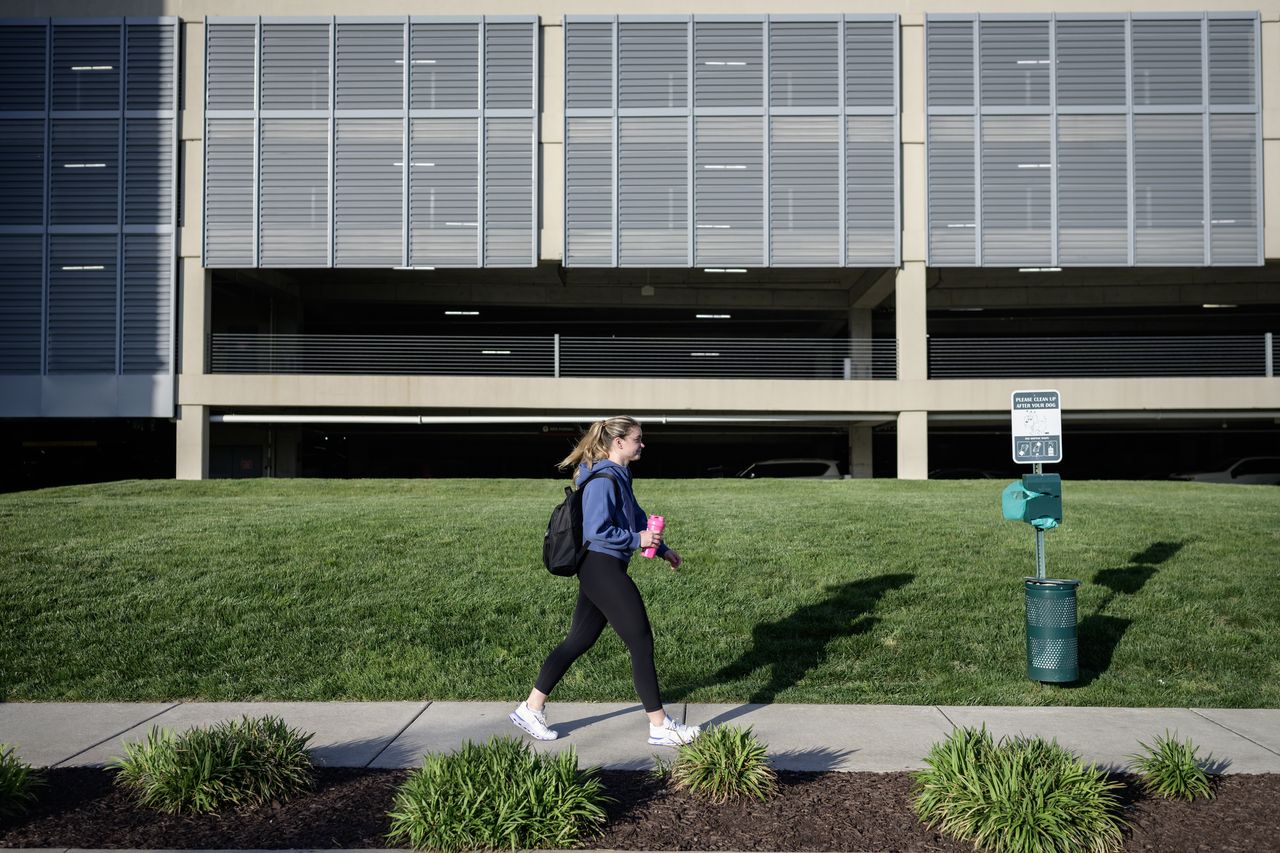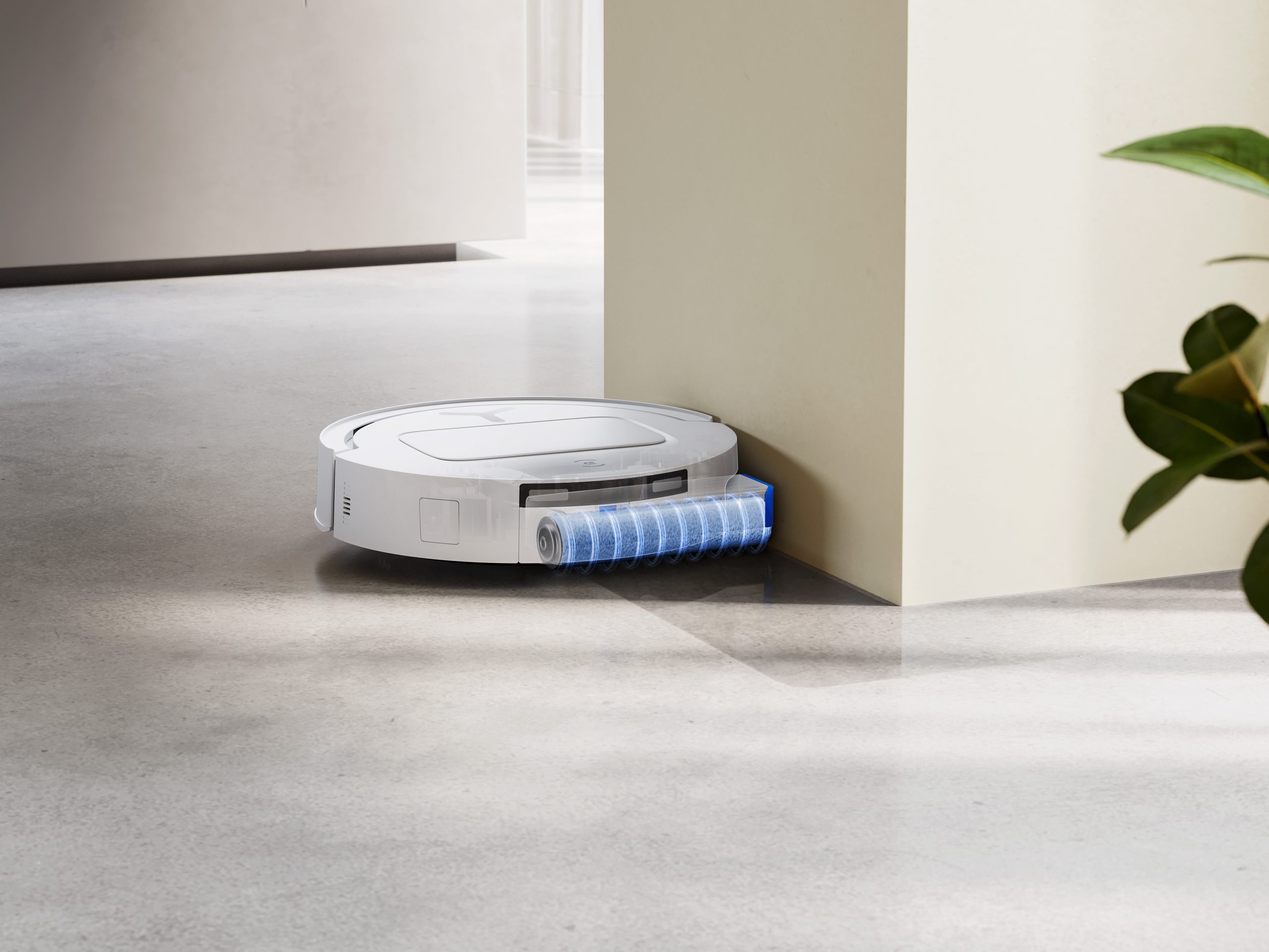How TikTok Is Wiring Gen Z’s Money Brain
Endless videos about the economy and consumerism are giving 20-somethings a case of ‘money dysmorphia’
Americans under 30 get much of their news on TikTok. They hear about money there, too, and that’s shaping the way they save, spend and view their financial prospects, young adults and economists say.
Caitlyn Sprinkle, 27 years old, describes her TikTok feed as a mix of economic gloom and consumerism gone wild. There are Dave Ramsey TikToks that warn of the evils of debt , followed by influencers showing off their shopping hauls of skin-care products and handbags.
Sprinkle, a financial analyst at an asset-management firm in Nashville, Tenn., uses a budgeting app and has been cooking at home lately to save money—and to be able to afford the things she feels she has to buy, like Lululemon leggings. “Between TikTok and having your friends around you, you’re pressured to buy the things because you want to fit in,” she says. “That’s always been the case, but with TikTok it’s more prominent.”
Rallying stocks, rising wages and a tight labor market suggest the economy is stronger than it has been in years. The youngest, lowest-earning professionals don’t feel that way—partly because a large share are carrying consumer debt, and partly because of what they’re seeing on TikTok.
Even as the platform faces a potential ban in the U.S. , it remains a massive cultural force that shapes young adults’ decisions and views. More than half of all U.S. adults ages 18 to 34 use it, according to Pew Research Center, while about a third of those 29 and under say they regularly get news on TikTok , up from less than 10% in 2020.
So, what happens when your main source of news tells you that no one in your generation will be able to buy a house , food prices are spinning out of control and credit-card debt is unavoidable—but also that $2,500 Louis Vuitton bags and $70 moisturisers are, as many videos say, “a must”?
Interviews with finance experts and more than a dozen young adults suggest that the result is confusion, with a side of gloom. Under-30s are taking on debt as they embrace an old idea: If the outlook is bad, why not enjoy life now?
Their own money behaviour
TikTok is creating a disconnect between how well off young adults actually are and how they think they’re doing, according to economists and 20-somethings themselves. That disconnect has given rise to a term financial advisers use to describe young adults’ distorted view of their financial well-being: “money dysmorphia.”
Evelyn Hidalgo, 29, makes her living as a full-time content creator after being laid off from a social-strategist job about a year ago. While she posts about being a mum on a budget, her TikTok feed often shows her trendy items she wishes she had, or a life that seems impossibly far from her own, such as owning a large, beautiful home.
“It doesn’t feel like the norm is your normal,” says Hidalgo, who lives in Nashville with her husband and 20-month-old son. As she looks at the economy on TikTok and other social media, her feed feels “split in half,” between those living an enviable life and those who are struggling.

Gen Z’s mixed economic feelings could have an effect on the outcome of the elections this fall, but the greater impact could be on their long-term financial health, economists say. Feeling financially uncertain can lead to poor choices, such as credit-card debt that eats into retirement funds and necessities such as food and housing, says Jacob Channel, senior economist at LendingTree, an online lending marketplace.
Over the past two years, members of Gen Z—those born between 1997 and 2012—effectively doubled their non mortgage debt, taking on roughly an additional $11,000 on average, according to LendingTree.
Still, younger American adults—those born in the 1990s—saw their median wealth more than quadruple to more than $40,000 between 2019 and 2022, according to the Federal Reserve Bank of St. Louis. That has outpaced the growth rates for previous generations at a similar age, says Lowell Ricketts, a data scientist there.
While many markers of adulthood such as homeownership feel out of reach, young adults are reaping the benefits from the current economic climate, says Monique Morrissey , senior economist at the Economic Policy Institute, a nonprofit economic-research and policy organisation.
“Gen Z and younger millennials are experiencing tailwinds and may not realise that they’re benefiting from a tight labor market that has led to an unusually rapid increase in real wages for younger and lower-wage workers,” she says.
Adding to the confusion is the economy itself. After a string of data showed strength in the labor market, growth is beginning to slow. U.S. employers added a seasonally adjusted 175,000 jobs in April, less than March and below the 240,000 economists anticipated, and unemployment rose to 3.9%, according to the Labor Department.
Keeping up with the Joneses
Many TikTok users say their feeds have become a loop of get-ready-with-me posts, ads, influencer partnerships and videos that encourage them to buy stuff from TikTok’s virtual shop . Some 91% of Gen Zers say they have purchased something they saw on social media, according to a survey from Citizens Pay, a buy-now-pay-later service from Citizens.
BreAunna Rodriguez, a 23-year-old mom of two in Houston, likes to buy TikTok-popular baby clothes and other small things for herself, including eyelash extensions, coconut-oil mouthwash and a pumice stone that influencers said reduces stretch marks.
“It’s hard not to buy things if they say it’s good for me,” she says.
TikTok has influenced bigger decisions, too, she says. Her For You page is filled with young entrepreneurs who snub the idea of a 9-to-5 job. This inspired her to quit her job as an assistant property manager in late 2022 and take a remote, commission-based job for an internet-and-cable company.
“You see a 19-year-old trader on TikTok who only has to work two hours a day, and I was like, ‘How do I do that?’”
Rodriguez says she makes more money now, contributes to a 401(k), pays off her credit card bills each month and puts her annual tax refund into a savings account to help with expenses throughout the year. Her biggest monthly expense is the $2,000 she pays for daycare for her two kids.
The constant videos of consumption—whether it’s a Stanley cup , a Jellycat plush or makeup —are hard to resist. TikTok last year created its own e-commerce engine , TikTok Shop, to compete with online retailers.
About six months ago, Sprinkle bought a Stanley tumbler. “I held out as long as I could,” she says, adding that she had bought several other water bottles that were trending on TikTok.
“There’s an internal pressure among my age range to constantly have these experiences and share them,” says Evan Naar, a 28-year-old lawyer in New York who posts TikToks about Broadway shows he’s seen and a Taylor Swift concert he attended.
Naar, who has several thousand dollars in student debt, says at some point he wants to save more money and buy a house. “A lot of my paycheck goes toward living expenses, travel and Broadway shows,” he says.
OK, doomer
Encountering post after post about the downsides of the economy contributes to “doomerism”—an overwhelming feeling of despair. This has made some young adults thrifty.
“I’m not going to spend my last dollar to keep up with the Joneses,” says Tanayah Thomas, a 23-year-old clothing designer and licensed financial adviser in Staten Island, N.Y. “We have to prepare for what’s to come.”
She’s currently living with her mom to save money.
Tommy Chanthavong, a 27-year-old in Houston who manages social-media accounts for small, local businesses, also moved back home. He says it’s hard to parse the information shown on TikTok: One minute he sees videos saying the U.S. is on the brink of a recession and the next he sees that inflation is easing.
In The Wall Street Journal’s latest quarterly survey of business and academic economists , respondents lowered the chances of a recession within the next year to 29% from 39% in January—the lowest probability since April 2022.
Sprinkle, who shares an apartment with a roommate, says she’d love to own a house one day, but it feels like a distant dream.
“You have to have a level of happiness, and being able to do the things you want and buy the things you want is part of it,” she says. “Do I save all of my money for the future? No. I try to live more in the moment.”
 Copyright 2020, Dow Jones & Company, Inc. All Rights Reserved Worldwide. LEARN MORE
Copyright 2020, Dow Jones & Company, Inc. All Rights Reserved Worldwide. LEARN MORE
Records keep falling in 2025 as harbourfront, beachfront and blue-chip estates crowd the top of the market.
A divide has opened in the tech job market between those with artificial-intelligence skills and everyone else.
Coca-Cola, 3M lead blue-chip index higher after reporting results.
Strong earnings reports briefly helped power the Dow Jones Industrial Average above 47000 for the first time, the latest milestone in stocks’ three-year bull run. The blue-chip average pared gains to close below the mark, but still finished at a record.
With sky-high earnings expectations baked into stock prices, Wall Street has been watching this third-quarter reporting period closely. So far, Corporate America has delivered.
Heavyweights Coca-Cola , 3M and General Motors all reported results that exceeded analyst expectations before the opening bell on Tuesday. 3M shares rose 7.7% to a four-year high, leading the Dow.
GM soared 15% to the highest level since its 2010 post-bailout initial public offering after Chief Executive Mary Barra raised guidance and told analysts the automaker can’t make enough full-size SUVs to keep up with demand.
GM said it is making faster-than-expected progress reducing a multibillion-dollar tariff bill—a key topic for investors who are still laser-focused on trade tensions between the U.S. and China.
A solid start to third-quarter earnings has helped buoy investor sentiment, taking stocks back toward record highs after concerns over trade and credit quality bubbled up earlier this month.
As of last Friday, 86% of companies overshot earnings estimates, according to FactSet. Nearly one-fifth of S&P 500 companies are scheduled to give financial updates over the course of this week.
The S&P 500 was little changed Tuesday, while the Nasdaq composite dropped 0.2%. The Dow rose 0.5% to a record closing level of 46924.74. Treasury yields slipped, with the benchmark 10-year yield closing at 3.962%, its lowest reading since October 2024.
“This is a market being driven by strong fundamentals,” said Scott Helfstein , head of investment strategy at asset manager Global X. “Earnings growth is largely driving equity values.”
Elsewhere Tuesday, it was a historically ugly day for precious metals after an epic run-up switched abruptly into reverse. Gold tumbled 5.7%, its worst single-day decline since 2013. Silver fell 7.2%.
Some analysts tied the selloff in safe-haven assets like gold to optimism that the U.S. will reach a new trade deal with China, after the U.S. and Australia signed a rare-earths trade agreement on Monday. The drop followed a remarkable run of gains : Gold remains up 55% on the year and only fell to its lowest level since Oct. 10.
In company news, Warner Bros. Discovery said it is exploring a potential sale of some or all of its media holdings, which include a movie studio, HBO Max and CNN. Its shares rose 11% on the news, which could reshape the entertainment industry.
A luxury lifestyle might cost more than it used to, but how does it compare with cities around the world?
When the Writers Festival was called off and the skies refused to clear, one weekend away turned into a rare lesson in slowing down, ice baths included.























